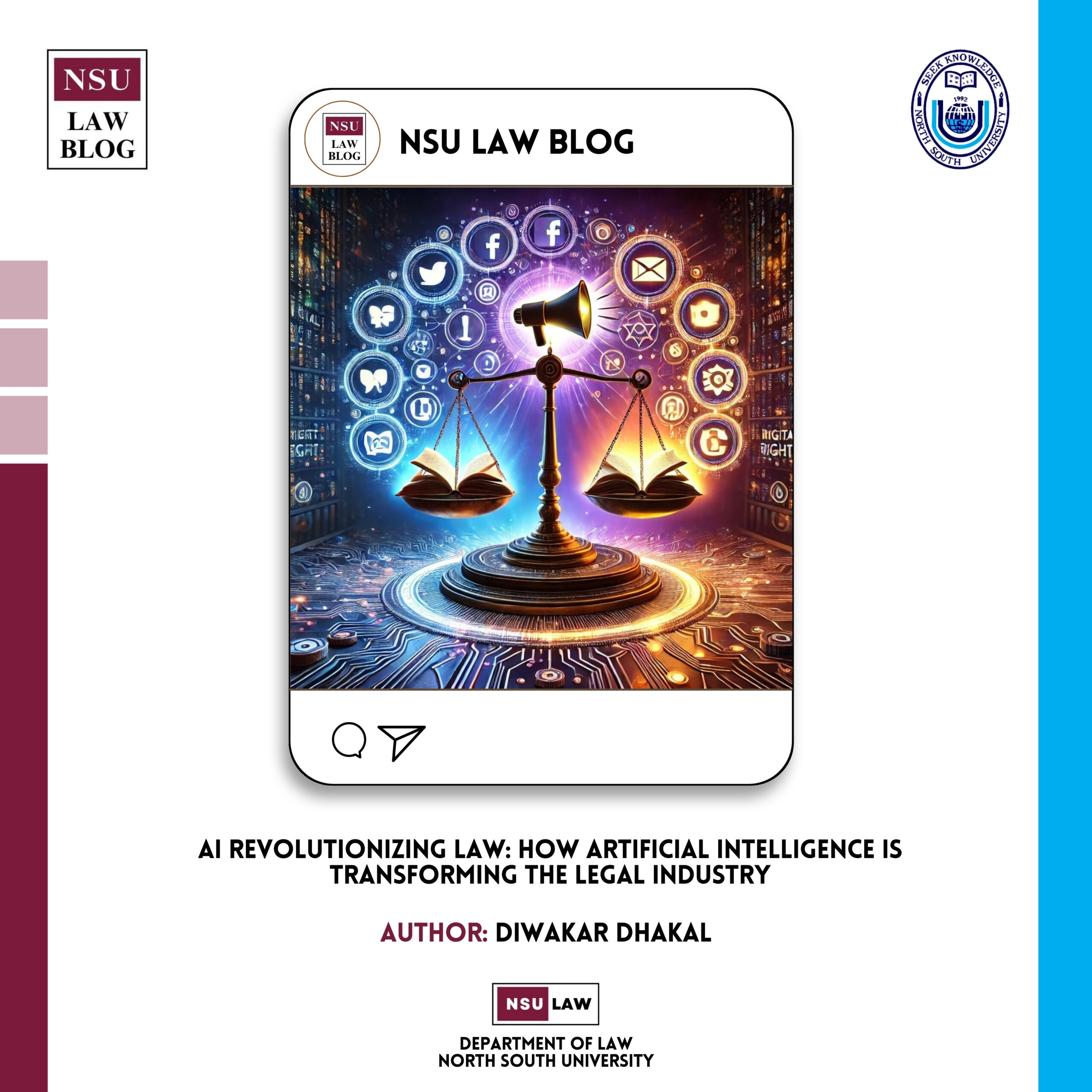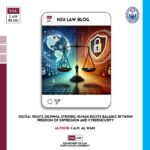AI Revolutionizing Law: How Artificial Intelligence Is Transforming The Legal Industry

As the orbit of artificial intelligence (AI) precipitously unfolds new parameters every day, its wavelength is increasingly yanking onto the legal profession too. As British author Susskind quoted in their book “The Future of the Profession” AI is not going to replace lawyers, but it will change the way they work,” which is a nuanced foretold about the impact of AI on the legal profession. Over the past years, the application of artificial intelligence in the legal landscape has become progressively pervasive, yet many legal professionals and practitioners are incognizant of its consumption. Despite the growing adoption of technology in the legal industry, there is still mystification about the role of AI in law and legal practice.
Substantive Benefits of AI in Law
Increases Access to Legal Services
As the Center for American Progress has written, promoting equal, meaningful access to legal representation in the U.S. justice system is critical to ending poverty, combating discrimination, and creating opportunity. Adopting AI in the legal industry would unquestionably broaden access to the courts and judicial systems, which are prohibitively expensive for many lower-income individuals. Also, legal representatives who were previously overburdened with work will now be able to take on additional cases, providing clients with the legal support they need. In a similar vein, some may make use of automatically generated legal complaints to quickly overwhelm court systems across numerous jurisdictions with baseless cases composed of artificial intelligence. In 2022, the California Code of Civil Procedure, Part 2—Civil Actions, Title 3A—Vexatious Litigants, Section 391 was introduced in California law with relation to vexatious litigants in order to prevent these kinds of abuses.
Efficiency Improvements in Legal Actions
By acclimatizing to AI-driven technology in legal firms, the retrieval of cases, regulations, and other documents of information extraction can be done within an anticipatory time. For instance, in the UK, several firms have adopted AI and ML (machine learning), software infused with the ability to “learn” how to perform certain tasks and improve in line with human direction and feedback, to help with litigation strategies, as well as to strengthen efforts to streamline legal processes and enhance efficiency in other areas. More broadly, AI will make it much more efficient for attorneys to draft documents, including contracts, the many different types of documents that get filed with the court in litigation, responses to interrogatories, and trial transcripts to analyze in real-time and provide input to lawyers that can help them choose which questions to ask witnesses.
Predicting Litigation Outcomes
AI tools can help litigators predict the outcomes of cases by analyzing vast troves of historical judgments, looking at the facts in each particular case, and considering the decisions reached by the judge. This type of software can also spot trends; for example, Blue J Legal software company in Toronto, Canada, is developing an AI-based legal prediction engine with an initial focus on tax law. According to the company, their engine can accurately forecast the outcomes of ongoing cases with 90% accuracy and increase research efficiency in challenging areas of tax and employment law. Similarly, Womble Bond Dickinson, a translating law firm has published a paper entitled “How Artificial Intelligence Is Impacting Litigators”, which found that one such “algorithm reportedly predicted with 70% accuracy the outcomes of 7,700 cases that the U.S. Supreme Court handed down from 1953 to 2013. The two products that use AI to shift through thousands of court judgments and predict likely litigation outcomes are Lex Machina and Solomonic. As a result, they can be particularly helpful for more junior litigators. They also help to reduce the likelihood of wasting resources on going to trial where a case is unlikely to succeed.
AI Policing, Crime Prevention, And Law And Order
Predictive policing algorithms (PPAs) refer to the use of technologies in data science and artificial intelligence (AI) to predict threats and suggest solutions in law enforcement. It depends on vast amounts of data, including historical crime reports, arrest records, demographic information, and even social media activity. AI tools can be used in the criminal justice sector for predicting recidivism, which is commonly used to assess pretrial, parole, and sentencing decisions. For instance, in the USA, the Global Positioning System (GPS) offender tracking system tracks criminal offenders, whether they are breaking the terms of their probation or parole, which consequently improves public safety. Moreover, AI is used to detect fraudulent activity in areas such as insurance claims, financial transactions, tax returns, and checking for social security fraud, where it steadfastly helps the legal and business sectors. Therefore, substantive benefits can be gained if executed effectively in the legal landscape.
Moving Forward With Fast-Forward AI
The advancement of new AI technologies continues on its worrying trajectory; however, the legal landscape needs to be cognizant of the adaptability that AI is there to underpin the legal system rather than diminishing the importance of the legal element at its core. Otherwise, “when humans stopped learning, machines started learning.” Instead of considering AI as a foe, it should be considered a friend because when AI-lawyer collaboration is done, it maximizes the benefits of both by mitigating individual limitations, which eventually leads to a judicious legal ecosystem. By addressing the ongoing challenges of ethical considerations and harnessing technology responsibly, the legal industry can leverage AI to create a conducive environment. In addition, by prioritizing fairness, transparency, privacy, and accountability, we can harness the power of AI to constitute a more just and equitable legal system for the future. When it is regulated within legal frameworks, issues like, Will robots replace lawyers? Will artificial intelligence eventually make legal professionals redundant? would become non-negotiable.
In conclusion, the immoderately increasing use of AI in the legal profession is a promising partner to make legal services faster, more accurate, and more accessible for all. It is being leveraged in a range of legal technology products to assist law firms with a wide range of legal errands, from billing automation to contract review, building lawyer-client counseling to the success of the law firm, and innovative strategies to predict probable outcomes. Therefore, the use of AI and machine learning in the legal field offers the possibility of breaking down barriers to justice, particularly by truncating the exorbitant cost of procuring legal assistance and increasing reachability for everyone, regardless of their pecuniary status.

Diwakar Dhakal1 Posts
Diwakar Dhakal is a 4th-year BA LLB student at Kathmandu School of Law, Nepal.


0 Comments